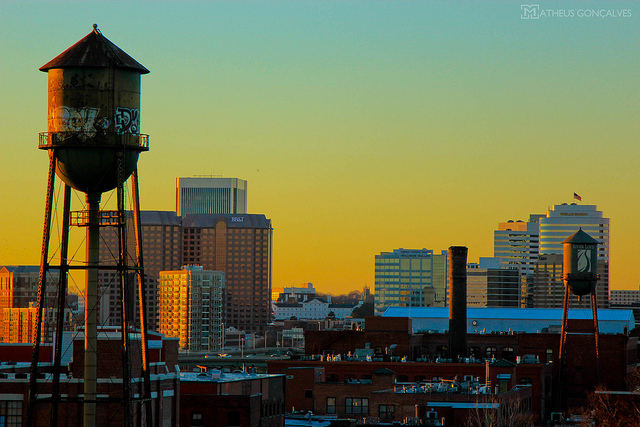Controlling the bottle
Photo by: Billie Grace Ward
Buying your first bottle of liquor, an unspoken accomplishment of adulthood. Turning 21, especially in a state that controls the sale of alcohol means taking a trip to your local ABC store; A certified liquor store, ran by the government to control the sale of alcohol. All funds you use inside one of these stores goes directly to the state, which at first glance means nothing. However, this is a hidden evil as Virginia is notorious for keeping their monopoly on liquor tightly held. Over a course of 76 years Virginia has a made remarkable profit over this monopoly. According to the 2015 annual report the total profit made from alcohol was $400 million about $10 million more since 2014.
Most of these profits come form state taxes that go onto the liquor and manufacturer. Virginia’s monopoly over liquor is a steady source of income as it draws in around $300 to $400 million dollars every year. The money is good for the state as it funds numerous projects but having a monopoly over the whole process restricts more than just where to buy a drink. The prices of alcohol have rose over the years with the most recent raise being in 2014. The steady increases in prices of alcohol and little over watch puts the economy in a bind.
Without enough government over-watch over the board that regulated the sale of alcohol, certain issues start to arise. Starting with the board itself, the member’s require no minimal qualifications, has political favoritism, and acts more of an agency than a regulatory committee. These issue then become
- higher prices for alcohol
- fewer choices and store choice
- poorly regulated substance
Alcohol is an addictive substance and letting the board run freely can not only hurt communities, but the state as a whole. As a voting citizen we are entitled to a fairly governed government. Your voice only is important in solving this already failing system. Even now the board is under the microscope as bill is set to hit the floor this year. The bill would recreate the board, adding qualifications and treating committee more like a business. This in return would mean over-water over the whole process, cheaper prices, and better choices. It would be free to hire employees at will and would make it much easier to hire qualified people to a position. Alcohol can be a serious issue if not looked at, this is why people need to voice their votes, before the bill is shot down.
The city price tag
Photo by: Matheus Gonçalves
Richmond is the bustling heart of Virginia packed with shops, communities, and a ever changing population. I was born in Chesterfield, Virginia just 20 minutes away from the heart of the city. Growing up in the suburbs trips to Richmond were frequent and expected.
Over the years of getting to know Richmond I’ve seen it change. The issue of gentrification has popped up around numerous communities. Gentrification is the increase of property vales, which in return displaces lower-income families. For Richmond it is only in the early stages. Areas that were know to be lower income area are now being re-branded as being a “culture center”.
This can be seen in a multiple of ways. Rocketts Landing is an example of this. Taking the old cigarette factories, in the outskirts of the city around the train yard and turning it into apartments and restaurants. This is good for the area, as buildings are being re-purposed for other means, but this is bad for the communities around it. Gentrification seems like a good thing at first glance. Refurbish the old place and create new areas for cultures and arts. Whats not taken into account is the price tag added along, and the communities that are pushed out.
Richmond is a melting pot of communities put together. Over the years however people have been seeing some being pushed away. Matthew Tatem a longtime friend and resident of Richmond, Virginia has this to say
“An area that would normally be filled with people are now filled with for sale signs. Rent in my area has been steadily increasing, and much like the neighborhood next to me it is hard to keep up with changing tides.”
Tatem, Matthew. personal interview. 10 April, 2016
Tatem shares the same view with anyone living in the city. The fear of increasing rent values are dragging people away from a city with diverse communities. Richmond is made of these diverse communities and with African American populations falling. It is important to keep our city alive and diverse. Reach out the city, and be involved with promoting city policies to lower housing rates and support a better fairer city. Richmond should be a home to all, not just those that can afford it.


